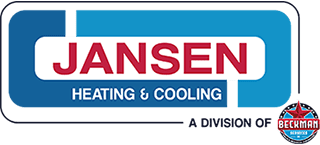Seal Air Leaks for Home Efficiency and Comfort

Don’t make the mistake of assuming your home’s heating and cooling system is a stand-alone component that works in isolation. The fact is, a variety of other factors affect how well your HVAC system does its job.
Airtightness
One of the main ones is your home’s airtightness. You can have a state-of-the-art home comfort system, but if your house is leaking air like a screen door, you’re not going to feel comfortable, either physically or financially.
A house that’s leaking air has problems in both winter and summer:
Winter air-leaking problems
During the heating season, warm air escapes through holes, gaps and cracks in a home’s exterior envelope, or if the air pressure is higher outside than inside, cold air will enter the home.
Summer air-leaking problems
In the summer, warm air infiltrates into your home in the same way. Similarly, a lack of proper insulation allows an excess heat exchange between the inside and outside.
Bottom line, a leaky outer envelope in a home makes it difficult to maintain consistent indoor temperatures.
Weatherization
The difference between an efficient and inefficient residence is immense. If your home lacks proper weatherization, your HVAC system will work harder than necessary to keep the house comfortable.
A leaky house will deliver a number of negative repercussions, including
- higher utility bills,
- overworked equipment that eventually will break down and require an expensive HVAC repair and
- uncomfortable drafts and cold spots throughout the house.
How does one find air leaks?
To determine where air is escaping and entering your home, you have two choices:
- A professional home energy audit utilizing high-tech diagnostic equipment and experienced technicians. This comprehensive process will show how much energy is escaping your house and where.
The audit will reveal inadequacies in both airtightness and insulation, as well as negative issues with ductwork and other aspects of your home’s infrastructure.
The audit should produce a plan of action to correct issues it has revealed. It’s your choice whether to move forward with the plan, using the best HVAC contractor available in your community.
- A do-it-yourself energy audit. This one is mainly for finding air leaks. Light a candle or smoke pencil on a windy day, and walk slowly along the inside perimeter of your home, holding the candle near places that are potential air leaks:
- window frames and doors
- places where the flooring has shifted
- spots where building materials connect
- places where utility wires, pipes or vents penetrate the house
When you see the smoke or flame bending to a breeze, you’ve probably found an air leak. Doing this on a windy day is likely to produce more accurate results.
What can one do once an air leak is found?
One you know where air is escaping or invading your home, you or a trusted professional should seal those gaps and cracks. Depending on the size, location and type of opening, you can use weatherstripping, caulking or spray foam to seal the leak.
Read the instructions carefully for whatever media you’re using to seal the leak. If you’re not sure whether you have the skills to do this job, you can always hire it out.
Sealing air leaks will deliver a bonus besides low energy bills. If air is kept from entering or escaping from your home, then you can be assured that insects, snakes and other small critters also will be blocked from entering.
